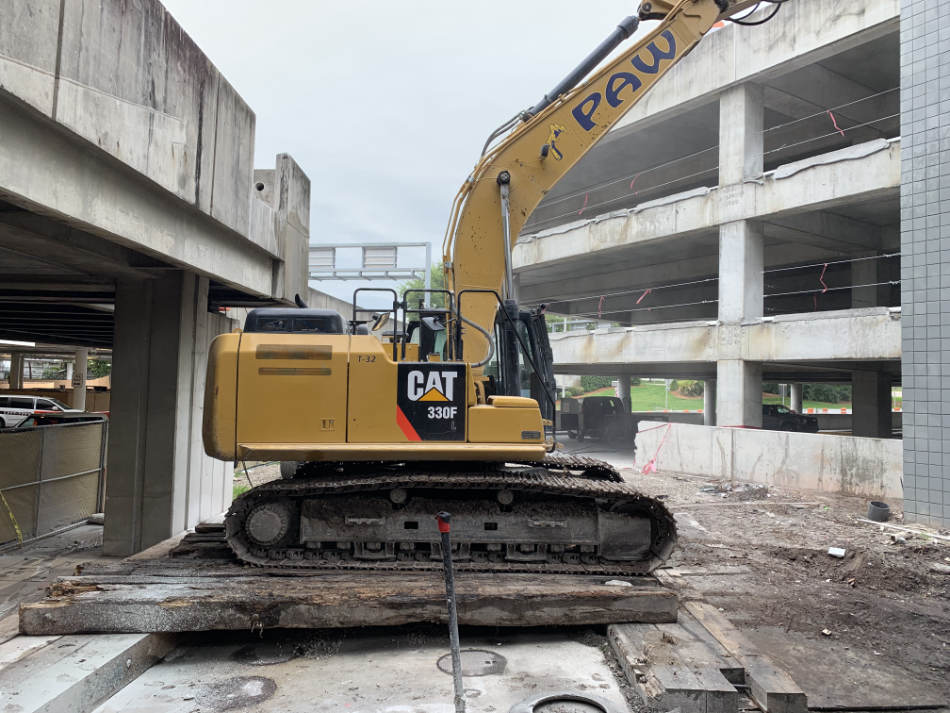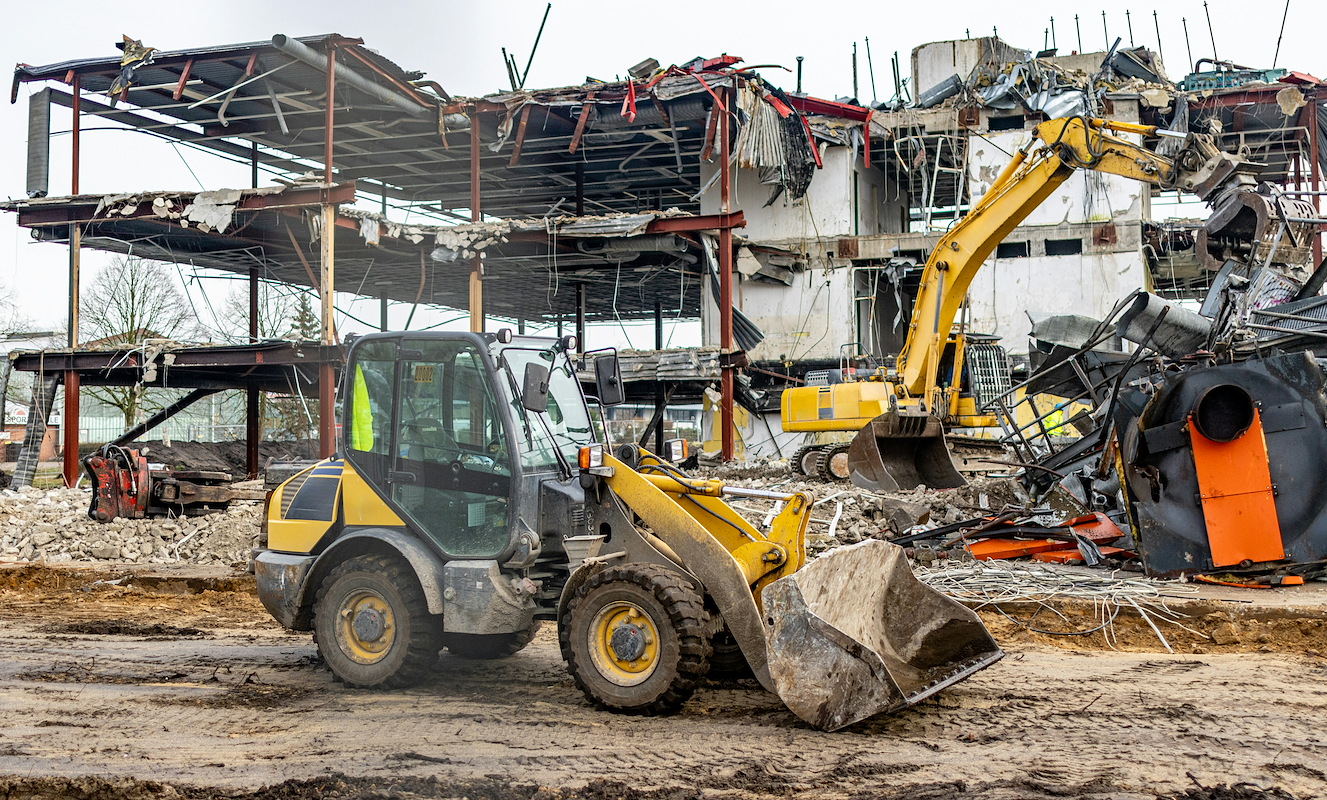Budgeting for a demolition project isn’t just about hiring the right crew. It’s about understanding every cost that can appear before, during, and after the work.
Whether you’re clearing a single-family home, preparing a commercial site, or managing a large industrial job, knowing what drives the budget is the difference between a smooth project and a financial headache.
We will walk you through the major cost factors, hidden fees, and Florida-specific considerations so you can budget with confidence.
Why Demolition Costs Differ
Two projects may look similar on paper but cost very different amounts. The factors that drive variation include:
-
Type of structure – residential, commercial, or industrial (explained here)
-
Materials – wood and brick are less expensive to handle than reinforced concrete or steel
-
Permitting requirements – costs shift by county (Hillsborough vs. Pinellas)
-
Accessibility – open rural lots cost less to service than tight urban lots
Always request a detailed scope of work. A single lump-sum quote may hide add-ons that appear later.
Average Demolition Costs in Florida
Florida demolition costs usually fall between $4 and $15 per square foot, depending on size, materials, and complexity. Small residential jobs might cost between $8,000 and $20,000. Larger commercial or industrial projects can reach well into six figures.
Key Florida-specific cost points:
-
Permits: Fees differ by county. See Florida demolition permits by county.
-
Utilities: Disconnect requirements vary by jurisdiction. Learn more about utility disconnections in Tampa.
-
Debris hauling: Landfill fees can be higher in urban counties than in rural ones.
For a precise number, it’s always best to request an estimate.
| Project Type | Typical Range (Florida) | Cost Per Sq Ft (Approx.) |
|---|---|---|
| Small Residential Home | $8,000 – $20,000 | $4 – $8 |
| Large Residential Home | $15,000 – $40,000 | $6 – $10 |
| Commercial Building | $30,000 – $200,000+ | $6 – $12 |
| Industrial Facility | $100,000 – $500,000+ | $8 – $15 |
The Major Cost Drivers
Permits and Inspections
Demolition cannot begin without permits. Fees are tied to square footage and environmental risk. Some counties also require asbestos or lead inspections.
Hazardous Material Removal
Asbestos, mold, or lead paint require certified handling. Removal adds significant costs but ensures safety and compliance.
Utility Disconnection
Power, water, gas, and telecom lines must be capped before demolition begins. Providers charge disconnection fees that vary by county and service type.
Labor and Equipment
Heavy machinery like hydraulic excavators or cranes increase costs but reduce labor hours. Skilled operators also add to the budget but improve efficiency.
Debris Hauling and Disposal
Debris can represent up to a third of the total budget. Rolloff trucks are needed to transport materials, and landfill tipping fees can escalate quickly.
Hidden Fees That Surprise Property Owners
Even with a thorough estimate, some fees often appear mid-project:
-
Additional environmental reports
-
Road or sidewalk closure permits
-
Erosion control measures after clearing
-
Pest removal if infestations are found
-
Weather delays that extend labor hours and equipment rentals
To reduce risk, ask your contractor if these contingencies are factored into their estimate.
Tip: Post-demolition site preparation should also be considered part of the budget since grading, soil stabilization, and cleanup may not be included in the initial estimate.
| Hidden Cost | Typical Impact |
|---|---|
| Asbestos or Lead Removal | +$2,000 – $10,000 depending on scope |
| Utility Disconnections | $200 – $1,000+ depending on services |
| Road/Sidewalk Closures | $100 – $500 (permit dependent) |
| Pest Removal | $150 – $500 if infestations are found |
| Weather Delays | Varies (extra labor/equipment rental) |
Safety and Trust in Demolition
Cutting corners on safety might lower the upfront cost but increases risk. A professional contractor provides:
-
Proper insurance coverage (see demolition liability details)
-
OSHA-compliant crews (safety procedures explained here)
-
Certified hazardous waste handling
-
Full compliance with county, state, and federal regulations
Sustainable Budgeting: Recycling and Green Practices
Recycling isn’t just good for the environment. Salvaging concrete, steel, and wood lowers landfill costs and can even return value to the project. Learn more about the eco-friendly benefits of demolition and how green practices affect the bottom line.
How Technology Impacts Your Budget
Modern machinery and attachments help finish jobs faster and with more precision. While the hourly rate for advanced equipment may be higher, the reduced project time often balances the cost. See how technology in commercial demolition improves efficiency and safety.

Fast, reliable demolition services from licensed pros with decades of field experience.
How to Keep Your Demolition Budget on Track
-
Collect at least three quotes for comparison.
-
Ask for a written scope that outlines every service.
-
Clarify whether debris will be recycled, salvaged, or landfilled.
-
Keep a 10–15 percent contingency fund for unexpected costs.
-
Partner with an experienced contractor who explains each step clearly.
Glossary of Demolition Terms
-
Asbestos Abatement: Removal of asbestos by certified specialists.
-
Controlled Demolition: Engineered demolition techniques for precision (learn more).
-
High-Reach Excavator: Tall-structure demolition equipment.
-
Tipping Fee: Disposal charge at landfills, usually by the ton.
-
Deconstruction: Careful dismantling to salvage usable materials.
-
Rolloff Container: Large debris container delivered on-site.
Frequently Asked Questions
How much does it cost to demolish a house in Florida?
Most Florida homes cost between $8,000 and $20,000 to demolish, depending on size, materials, and county permit fees. For details, see the house demolition cost breakdown.
What hidden costs should I expect in a demolition project?
Hidden fees often include asbestos removal, utility disconnection, landfill overages, or erosion control. Ask if these are covered in your estimate.
Is demolition cheaper than renovation?
In many cases, yes. If a building requires major repairs or has hazardous materials, demolition can be more cost-effective than extensive renovations.
Does insurance cover demolition costs?
Insurance typically does not cover standard demolition but may cover demolition tied to storm damage or safety hazards. Learn more about insurance and liability in demolition.
What happens after demolition is complete?
Projects often require site preparation before construction can begin. This includes grading and soil stabilization.
Final Thoughts
Budgeting for a demolition project requires more than estimating square footage. From permits and hazardous material removal to debris hauling and site prep, every stage has cost implications. By planning ahead and working with a contractor who values transparency, you avoid unpleasant surprises and keep your project on track.
Whether you need residential demolition or a large-scale commercial teardown, PAW Demolition offers expertise, safety, and clear communication.
Next step: Request a demolition estimate and start planning with confidence.

